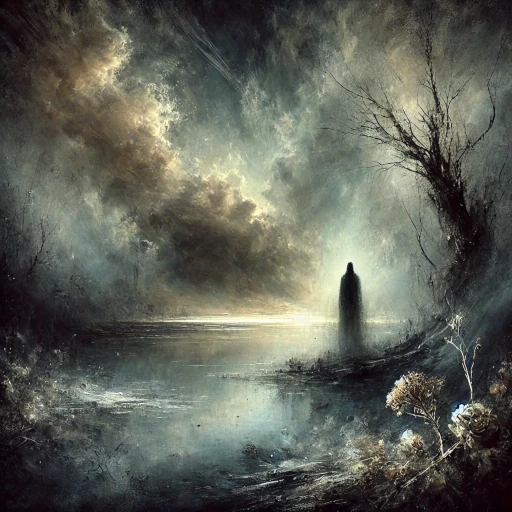“God is dead. God remains dead. And we have killed him. Yet his shadow still looms. How shall we comfort ourselves, the murderers of all murderers? What was holiest and mightiest of all that the world has yet owned has bled to death under our knives; who will wipe this blood off us? What water is there for us to clean ourselves?”

- October 15, 1844 – August 25, 1900
- Born in Germany
- Philosopher, poet, and classical philologist
table of contents
Quote
“God is dead. God remains dead. And we have killed him. Yet his shadow still looms. How shall we comfort ourselves, the murderers of all murderers? What was holiest and mightiest of all that the world has yet owned has bled to death under our knives; who will wipe this blood off us? What water is there for us to clean ourselves?”
Explanation
In this powerful and provocative quote, Friedrich Nietzsche announces the death of God, a symbolic idea that represents the decline of traditional religious beliefs and the moral systems that have shaped Western society for centuries. Nietzsche is not referring to the literal death of a deity but to the cultural and philosophical death of God as a central authority. The death of God, for Nietzsche, marks the end of an era in which religious values governed society and individual lives. With God’s “death,” humanity is left to face the absence of traditional moral structures that once provided meaning and purpose.
The phrase “we have killed him” suggests that it is humanity’s actions, particularly through the rise of rationalism, science, and philosophy, that have undermined and displaced the religious beliefs that once gave life meaning. Nietzsche is asking how humanity can now reconcile with the emptiness left by the loss of these guiding values. The “shadow” of God still looms over society because, even though people have rejected or outgrown religious doctrines, they still struggle to find meaning and purpose in a world that once revolved around religious belief.
The reference to being the “murderers of all murderers” highlights the deep guilt and responsibility that Nietzsche sees in this cultural shift. The death of God has left humanity with a moral vacuum, and Nietzsche questions how society will cope with the consequences of this loss. He asks, “Who will wipe this blood off us?” suggesting that humanity must now take responsibility for the moral and existential void left behind by God’s death. The phrase “What water is there for us to clean ourselves?” suggests that there is no easy way to cleanse or redeem humanity from this loss, and no moral framework exists to guide the way forward.
Historically, Nietzsche’s declaration is tied to his critique of Christianity and traditional morality. He believed that the decline of religious belief would lead to a crisis of meaning—a situation in which individuals must create their own values and purpose without relying on an external moral authority. For Nietzsche, this was both an opportunity for liberation and a challenge, as people would need to face the consequences of living in a world without a transcendent moral structure.
In modern contexts, this quote resonates with the existential crisis that many experience in a world where traditional religious structures are weakening, and people must find their own meaning and values. Nietzsche’s words challenge us to confront the implications of living in a world where we no longer rely on religious systems for answers. It also urges us to take responsibility for the moral vacuum created by the decline of such beliefs and to create our own meaning, free from the shadows of the past.
Would you like to share your impressions or related stories about this quote in the comments section?


